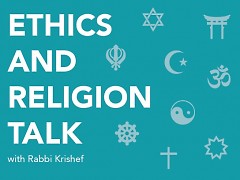Father Kevin Niehoff, O.P., a Dominican priest who serves as Adjutant Judicial Vicar, Diocese of Grand Rapids, responds:
“Pacifism ‘is opposition to war or violence by means of settling disputes; specifically, refusal to bear arms on moral or religious grounds’ (https://www.merriam-webster.com/dictionary/pacifism). Frantz Fanon was a psychiatrist, philosopher, revolutionary, and writer, who discovered and found useful the works of Georg Hegel, Karl Marx, and Edmund Husserl.
“In the Roman Catholic Church, the more foundational discussion is on peace. The Church teaches, ‘peace is the work of justice and the effect of charity’ (Catechism of the Catholic Church, p. 555). Accordingly, war is to be avoided at all cost and is only to be considered as a last resort. ‘Public authorities (remember the Catholic Church is universal so this is much greater than simply the United States) have the right and duty to impose on citizens the obligations necessary for national defense’ (ibid, p. 556).
“Given the rights and duties of public authorities, the Catholic Church teaches ‘public authorities should make equitable provision for those who for reasons of conscience refuse to bear arms; these are nonetheless obligated to serve the human community in some other way’ (ibid, p. 556).
“The Church allows for individuals to refuse to bear arms. However, these individuals must serve the community in some other way.”
Rev. Ray Lanning, a retired minister of the Reformed Presbyterian Church of North America, responds:
“Presbyterians reject pacifism and assert the right of civil government to wage war upon just and necessary occasions (Westminster Confession, Ch. XXIII, Sec. II). Note, the ‘occasion’ or cause for waging war must be ‘just’ or righteous, and ‘necessary,’ that is, there is no alternative. Early Christian aversion to military service had to do with the soldier’s oath, Roma mihi (‘Rome for me!’), a sin against the First Commandment, ‘Thou shalt have no other gods before me’ (Exodus 20:3). Idolatry of the state or nation is idolatry, however patriotic or popular. Christians should have no allegiance equal to or higher than to our God and Savior. ‘To Him your full allegiance yield’ (Ps. 115:11).
“ ‘Civil magistrates’ or earthly governments are armed with the sword ‘to execute wrath on him that doeth evil’ (Romans 13:4). Not to use this power in ‘just and necessary’ defense of the life, liberty, and welfare of those under their authority is a betrayal of their trust and a sin against God. As for armed rebellion, New Testament Christianity promotes reformation and transformation of society, not the overthrow of the established order. Presbyterians supported the American War of Independence because they saw it as waging war in defense of ‘inalienable rights’ granted by Almighty God. Had the British government conceded the point, we would have gladly persevered as part of the British Empire.”
My response:
There is a time and a place for non-violent resistance. Large numbers of people peacefully protesting such things as racism, gender inequality, gender-based violence, sexual orientation discrimination, or firearms violence, sometimes by engaging in acts of civil disobedience and allowing themselves to be arrested, bring attention to systemic problems and can prompt change. However, this kind of action presupposes a democratic society ruled by laws and courts that are ultimately answerable to the people. When the people who have the power to vote are persuaded that the only equatable solution is change, then change will happen.
However, if a minority of the population controls the executive, legislature, and judicial branches of the government along with the military, the price of civil disobedience becomes not just a few nights in jail but more likely a long prison sentence or execution. When the government is not answerable to the people, acts of protest are more likely to be met with violence than with sympathetic, listening ears that might lead to change.
Were it not for people of faith willing to stand up to fascism, by the end of the 1940’s, Europe and Asia would have been Judenrein. Perhaps there would be a Jewish community left in North or South America and Australia, assuming that Hitler’s march didn’t cross the oceans. Other religious and ethnic minorities would have become second class citizens at best, slaves to the Aryan race or sent to the gas chambers at worst.
Judaism does not advocate for preemptive, offensive war in order to expand one’s territory. At the most, preemptive strikes are permitted when they accomplish defensive goals, that of protective the lives of innocents. But Judaism does not suggest that when one is attacked, that it is in any way a higher level of moral behavior to let oneself be killed rather than defend oneself. The same principle applies regarding defending the lives of others.
This column answers questions of Ethics and Religion by submitting them to a multi-faith panel of spiritual leaders in the Grand Rapids area. We’d love to hear about the ordinary ethical questions that come up on the course of your day as well as any questions of religion that you’ve wondered about. Tell us how you resolved an ethical dilemma and see how members of the Ethics and Religion Talk panel would have handled the same situation. Please send your questions to [email protected].
The Rapidian, a program of the 501(c)3 nonprofit Community Media Center, relies on the community’s support to help cover the cost of training reporters and publishing content.
We need your help.
If each of our readers and content creators who values this community platform help support its creation and maintenance, The Rapidian can continue to educate and facilitate a conversation around issues for years to come.
Please support The Rapidian and make a contribution today.
